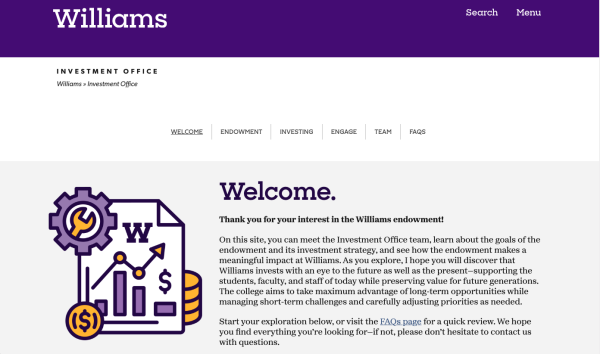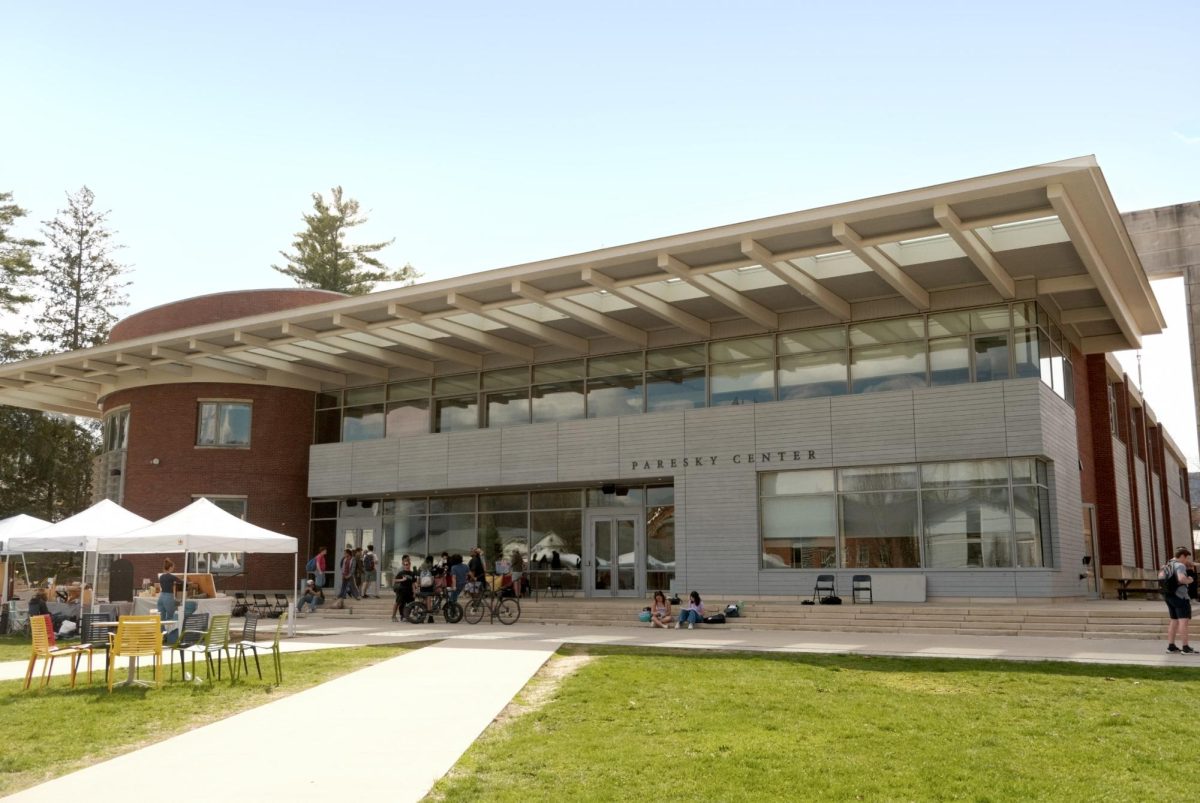
The College’s Investment Office launched a new website on Oct. 11 that includes details about the College’s investment strategy, asset allocation, and approach to investor responsibility standards. The website is part of the Investment Office’s efforts to make its practices more transparent, a commitment the College announced in the wake of student protests related to the war in Gaza.
This spring, protestors called on the College to divest from the Israeli Defense Forces; implement environmental, social, and governance (ESG) standards; and make more transparent the strategies that inform the College’s investments. On Feb. 9, the Advisory Committee on Shareholder Responsibility (ACSR) convened in response to a request from Jews for Justice (J4J) to implement these three demands. Professor of Philosophy Steven Gerrard also submitted a request against divestment.
Ultimately, the ACSR recommended in a May 23 report that the Investment Office offer “greater explanation, to the extent possible, of what kinds of values-based questions the Investment Office poses to potential managers.”
When the Board of Trustees convened in June, it was convinced by the merits of more accessible endowment information, and it tasked the College’s administration with developing plans to increase transparency over the summer and into the fall, according to a joint all-campus email from President of the College Maud S. Mandel and Chair of the Board of Trustees Liz Robinson ’90 on June 11. The new website provides an overview of the endowment, an outline of its governance structure, general information about the College’s investment strategies, and links to the College’s annual investment reports, which it had regularly released prior to the launch of the new site.
In an email to the Record, Chief Investment Officer Abigail Wattley ’05 wrote that the site intends to explain the Investment Office’s methodology. “Our goal with the website was to provide accessible information for the community to understand our process and results,” she wrote. “We feel we have done that.”
In the “Investor Responsibility” section of the site, the Investment Office explains that the current role of ESG standards when selecting fund managers — a point of contention in campus debates over the College’s endowment in the spring — is primarily informed by its risk management. “As an endowment, we are the ultimate long-term investor and as such, we must and do consider all risks that could impact the Investment Pool, including ESG factors,” the site reads.
Wattley explained that risk management specifically seeks to prevent the College from losing money on investments. “An example of that risk might be [that] environmental mismanagement may cause one of the investment manager’s portfolio companies to run afoul of regulatory compliance,” she wrote.
Wattley told the Record that the College does not have a specific list of ESG criteria for its potential fund managers, describing it instead as a holistic selection process.
“No one profile or quality is immediately disqualifying, and we don’t maintain a checklist of qualifying or disqualifying attributes,” she wrote. “We pass on many investments because, in sum, the profile isn’t consistent with what is appropriate for Williams.”
Wattley listed “reputational risk,” “an inexperienced investment team,” and “portfolio fit” as reasons why a potential fund manager might not be selected by the College’s Investment Office.
Alice Wanamaker ’25, a negotiator for Students for Justice in Palestine (SJP) — which has collaborated with J4J in organizing for divestment over the last year — said she thought the site lacks specificity about the industries in which the College’s endowment is invested.
Wanamaker acknowledged that investment offices often do not publicize details that might erode their relationship with fund managers — as the website states in its FAQ page — but she pointed to the information about environmental sustainability on the website as evidence that the College has leeway to reveal some information.
The site describes the College’s decision to phase out all investments tied to the fossil fuel industry and its impact investing program, which launched in 2015 and has committed over $50 million to “funds focused on investing in companies, technologies and projects aimed at reducing global greenhouse gas emissions.”
In addition to the new website, the Investment Office has “engaged with over 200 students through our information session, on-campus coffee chats, club presentations, breakfast meetings, and a pizza dinner,” Wattley wrote. Some of these events are part of the office’s annual summer intern recruiting process, while others — such as the “Pizza with the CIO” event — allow the community to learn about the Investment Office’s work more generally.
In her email, Wattley noted that community members are encouraged to reach out to the Investment Office to seek further information. “We welcome constructive suggestions and look forward to being in touch as we develop more opportunities in the coming year,” she wrote.














